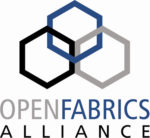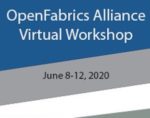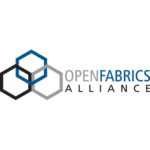Welcome to the 2020 OpenFabrics Workshop video gallery. The OpenFabrics Alliance (OFA) is focused on accelerating development of high performance fabrics. The annual OFA Workshop, held in virtual format this year, is a premier means of fostering collaboration among those who develop fabrics, deploy fabrics, and create applications that rely on fabrics. It is the […]
Agenda Posted for OpenFabrics Virtual Workshop
The OpenFabrics Alliance (OFA) has opened registration for its OFA Virtual Workshop, taking place June 8-12, 2020. This virtual event will provide fabric developers and users an opportunity to discuss emerging fabric technologies, collaborate on future industry requirements, and address today’s challenges. “The OpenFabrics Alliance is committed to accelerating the development of high performance fabrics. This virtual event will provide fabric developers and users an opportunity to discuss emerging fabric technologies, collaborate on future industry requirements, and address challenges.”
OpenFabrics Alliance to Expand Hands-On Tutorial Offerings at Its 2020 Workshop
In this special guest feature, Paul Grun from the OpenFabrics Alliance provides a preview of the upcoming OFA Workshop. “We are especially excited about how this year’s program is coming together. At the OFA Workshop 2019, we introduced a hands-on tutorial allowing participants to install an RDMA-enabled cluster directly on their laptop. In response to the overwhelmingly positive feedback, we are thrilled to be building on last year’s success by expanding the tutorials being offered this year.”
Call for Sessions: OpenFabrics Alliance Workshop in March
The OpenFabrics Alliance (OFA) has published a Call for Sessions for its 16th annual OFA Workshop. “The OFA Workshop 2020 Call for Sessions encourages industry experts and thought leaders to help shape this year’s discussions by presenting or leading discussions on critical high-performance networking issues. Session proposals are being solicited in any area related to high performance networks and networking software, with a special emphasis on the topics for this year’s Workshop. In keeping with the Workshop’s emphasis on collaboration, proposals for Birds of a Feather sessions and panels are particularly encouraged.”
Amazon Elastic Fabric Adapter: Anatomy, Capabilities, and the Road Ahead
Raghu Raja from Amazon gave this talk at the OpenFabrics Workshop in Austin. “Elastic Fabric Adapter (EFA) is the recently announced HPC networking offering from Amazon for EC2 instances. It allows applications such as MPI to communicate using the Scalable Reliable Datagram (SRD) protocol that provides connectionless and unordered messaging services directly in userspace, bypassing both the operating system kernel and the Virtual Machine hypervisor. This talk presents the designs, capabilities, and an early performance characterization of the userspace and kernel components of the EFA software stack.”
Faster Fabrics Running Against Limits of the Operating System, the Processor, and the I/O Bus
Christopher Lameter from Jump Trading gave this talk at the OpenFabrics Workshop in Austin. “In 2017 we got 100G fabrics, in 2018 200G fabrics and in 2019 it looks like 400G technology may be seeing a considerable amount of adoption. These bandwidth compete with and sometimes are higher than the internal bus speeds of the servers that are connected using these fabrics. I think we need to consider these developments and work on improving fabrics and the associated APIs so that ways to access these features become possible using vendor neutral APIs. It needs to be possible to code in a portable way and not to a vendor specific one.”
Characteristics of Remote Persistent Memory – Performance, Capacity, or Locality?
Paul Grun from Cray gave this talk at the OpenFabrics Workshop in Austin. “Persistent Memory exhibits several interesting characteristics including persistence, capacity and others. These (sometimes)competing characteristics may require system and server architects to make tradeoffs in system architecture. In this session, we explore some of those tradeoffs and take an early look at the emerging use cases for Remote Persistent Memory and how those may impact network architecture and API design.”
Accelerating TensorFlow with RDMA for High-Performance Deep Learning
Xiaoyi Lu from Ohio State University gave this talk at the 2019 OpenFabrics Workshop in Austin. “Google’s TensorFlow is one of the most popular Deep Learning (DL) frameworks. We propose a unified way of achieving high performance through enhancing the gRPC runtime with Remote Direct Memory Access (RDMA) technology on InfiniBand and RoCE. Through our proposed RDMAgRPC design, TensorFlow only needs to run over the gRPC channel and gets the optimal performance.”
The State of High-Performance Fabrics: A Chat with the OpenFabrics Alliance
In this special guest feature, Paul Grun and Doug Ledford from the OpenFabrics Alliance describe the industry trends in the fabrics space, its state of affairs and emerging applications. “Originally, ‘high-performance fabrics’ were associated with large, exotic HPC machines. But in the modern world, these fabrics, which are based on technologies designed to improve application efficiency, performance, and scalability, are becoming more and more common in the commercial sphere because of the increasing demands being placed on commercial systems.”
Call for Participation: OFA Workshop in Austin
The OpenFabrics Alliance has issued their Call for Participation for the 2019 OFA Workshop. The event takes place March 20-21 in Austin, Texas. “The annual OFA Workshop is a premier means of fostering collaboration among those who develop fabrics, deploy fabrics, and create applications that rely on fabrics. It is the only event of its kind where fabric developers and users can discuss emerging fabric technologies, collaborate on future industry requirements, and address problems that exist today.”












